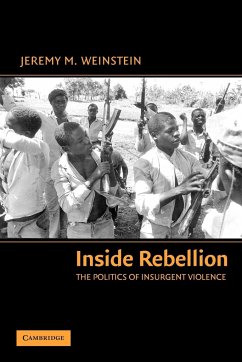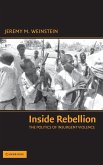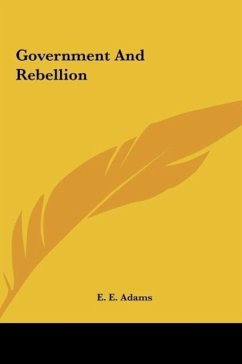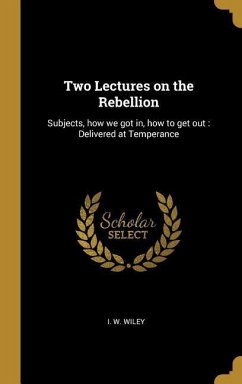Jeremy Weinstein unternimmt mit seinem Buch den Versuch einer soziologischen Erklärung des unterschiedlichen Verhaltens von Rebellengruppen gegenüber der Zivilbevölkerung. W.'s zentrale These lautet, dass Rebellengruppen, die über erhebliche materielle Ressourcen verfügen, weitaus mehr
unterschiedslose Gewalt anwenden, während „ärmere“ Rebellen Gewalt selektiver und strategischer einsetzen. Nach…mehrJeremy Weinstein unternimmt mit seinem Buch den Versuch einer soziologischen Erklärung des unterschiedlichen Verhaltens von Rebellengruppen gegenüber der Zivilbevölkerung. W.'s zentrale These lautet, dass Rebellengruppen, die über erhebliche materielle Ressourcen verfügen, weitaus mehr unterschiedslose Gewalt anwenden, während „ärmere“ Rebellen Gewalt selektiver und strategischer einsetzen. Nach W. hängen die Organisation und dass Verhalten von Rebellengruppen, die verfolgten Strategien und die Struktur der Mitgliedschaft vor allem davon ab, ob ihre Führung mehr ökonomisches oder eher soziales Kapital einsetzen kann. Die „reicheren“ Rebellen ziehen eher eine opportunistische, auf kurzfristige Gewinne orientierte Mitgliedschaft an, die sich auch gegenüber der Zivilbevölkerung entsprechend ausbeuterisch verhält, während „ärmere“ Rebellengruppen eher Aktivisten anziehen, die sich weniger aus materiellen Gründen engagieren und daher disziplinierter auftreten.
W. arbeitet in sein Buch mehrere Fallstudien ein (die NRA in Uganda, Sendero Luminoso in Peru, Renamo in Mozambique), die in der Interpretation von W. die Ausgangsthese vollumfänglich empirisch bestätigen. Die Renamo betrachtet W. dabei als bloße Räuberbande (wobei man durchaus geteilter Meinung darüber sein kann, ob Renamo nur wegen der Unterstützung aus Rhodesien/Südafrika bereits als im Verhältnis ressourcenreich anzusehen ist) während die Beschreibung der NRA teilweise fast hagiographische Züge annimmt.
Wer den Ausgangspunkt von W. für nicht vollständig überzeugend hält, wird während des Lektüre des Buches mehrfach Gelegenheit haben, sich darüber zu ärgern, dass der Autor anderweitige Theorien über das Verhalten von Aufständischen und andere mögliche Erklärungen für das in den Fallstudien beschriebene Verhalten eher übergeht oder weginterpretiert, als sich ernsthaft damit auseinanderzusetzen. So ist kaum einzusehen, warum Reichtum an materiellen Ressourcen gleichsam notwendigerweise zu undiszipliniertem und ausbeuterischem Verhalten führen soll. W. erklärt selbst, dass die NRA, als sie zwischenzeitlich zu Geld gekommen war, dieser Gefahr durch kluge Führung und überlegene Verwendung der Mittel entgehen konnte. Warum dies einer gut geführten und dem Maoistischen Volkskrieg folgenden Aufstandsbewegung nicht auch schon von Anfang möglich sein sollte, erschließt sich nicht. Letztlich wäre es wohl sinnvoller, eher die überragende Bedeutung von sozialem Kapital dafür zu betonen, dass sich eine Aufstandsbewegung im Volk verwurzelt und sich nicht zu einer Räuberbande entwickelt, unabhängig vom Umfang der materiellen Ressourcen.
Insgesamt handelt es sich bei dem Buch um einen anregenden Beitrag zur Forschung über Aufstandsbewegungen, aber leider nicht um den von der Verlagswerbung und einigen Rezensionen versprochenen großen Wurf.








